If you’re asking yourself, “What’s the right propeller for my boat?”, you’re not alone, and you’re asking a very important question. If you want to boost fuel efficiency, achieve higher speeds, or simply enjoy a smoother ride, choosing the right boat propeller is one of the most significant decisions you can make for your boat’s performance. And there are more types of boat propellers out there than most boaters realize. From 3-blade propellers to ducted propellers, there’s a perfect match for nearly every setup. Let’s break it down and understand the most common types of boat propellers, explaining how they affect water flow, thrust, and fuel economy.
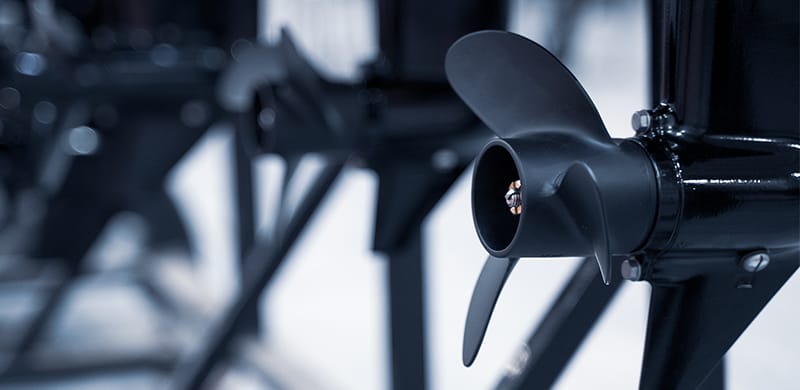
Why the Right Propeller Matters
You could have the most powerful boat engine in the world, but if you pair it with the wrong prop, you’ll feel like you’re dragging an anchor. The propeller is what takes your engine’s horsepower and turns it into forward motion. It affects your boat’s:
- Acceleration
- Top speeds
- Handling in rough waters
- Fuel efficiency
- Load-carrying ability
- How your boat planes and corners
If you’re not running the right propeller, you’re not getting the most out of your boat performance. It’s as simple as that.
1. 3-Blade Propellers
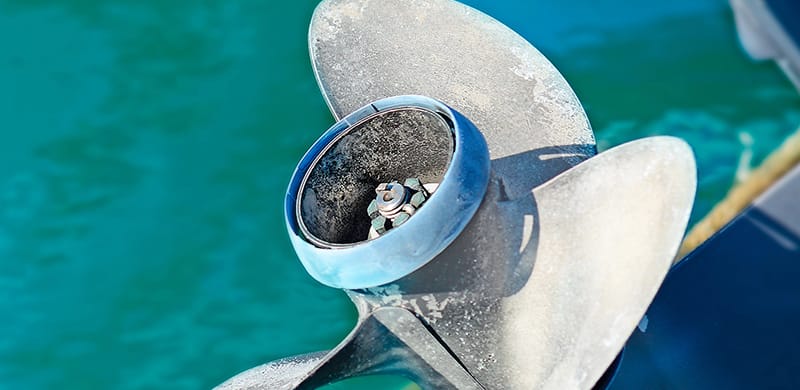
Let’s start with the most common type on the dock: 3-blade propellers. These are what you’ll find on many boats, especially recreational boats and fishing boats. They strike a good balance between speed, fuel economy, and smooth operation.
Why People Love 3-Blade Propellers:
- Great for smaller engines
- Less surface area means less drag
- Good top speed
- Easy to find and replace
If you’re cruising the lake on weekends or casting lines at sunrise, chances are you’re already using a 3-blade boat propeller, and you’re probably happy with it.
2. 4-Blade Propellers
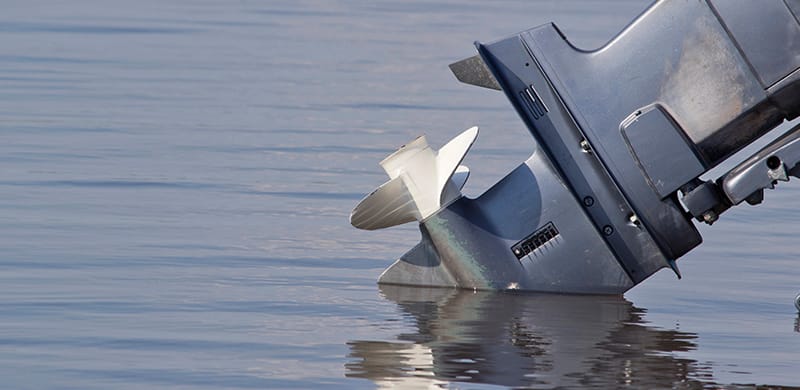
When you add a fourth blade, you get more thrust, better stability, and often a smoother ride, especially in rough waters. 4-blade propellers are ideal for larger boats, pontoon boats, and situations where fuel efficiency or improved performance under heavy loads are more important than sheer speed.
What You Gain With 4-Blade Propellers:
- More power for heavier boats
- Better for pulling skiers or tubers
- Handles chop and waves more easily
- Quicker planing
Keep in mind that fewer blades usually mean higher top speeds, so if you’re a speed demon, this may not be your best bet.
3. 5-Blade Propellers
Now we’re getting into specialized territory. 5-blade propellers are renowned for their smooth operation, quiet performance, and precise handling. You’ll often see them on inboard engines or high-end boats focused on comfort.
Benefits of 5-Blade Propellers:
- Virtually no vibration
- Excellent handling
- Perfect for cruisers or yachts
Of course, with more blades comes more drag; so while you get a smoother ride, you’ll typically sacrifice a bit of speed and fuel economy.
4. Aluminum Propellers
Aluminum propellers are everywhere, and for good reason; they’re affordable, lightweight, and work well for the majority of recreational boats. If you’re on a budget or just testing the waters, aluminum boat propellers are a good start.
Why Choose Aluminum Propellers:
- Easy to find and replace
- Great for smaller boats and trolling motors
- Less risk if you hit something underwater
That said, these propellers bend more easily than other materials. If you boat in shallow areas, you can expect to replace your aluminum propellers more often.
5. Stainless Steel Propellers
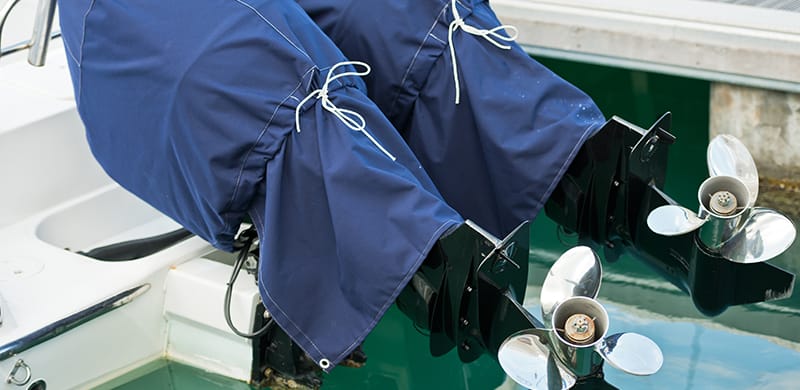
Ready to level up? Stainless steel propellers are the top choice for performance-minded boaters seeking durability, speed, and improved performance. They’re more rigid than aluminum, which means less flex, more thrust, and better retention of blade angle at higher speeds.
Pros of Stainless Steel:
- Excellent for high-performance boats
- Corrosion resistant, so they perform well in salt water
- Holds up in rocky areas
- Provides more thrust and control
The downside of stainless steel propellers is that they’re more expensive, and if you hit something, you might damage your lower unit instead of just hurting the prop.
6. Fixed Pitch Props
Fixed-pitch props are exactly what they sound like: blades set at a specific angle that cannot be adjusted. These props are found on most conventional propellers used by everyday boaters. They’re simple, reliable, and designed for consistent performance. You’ll find these on everything from aluminum to stainless steel.
Ideal For:
- Simple use cases
- Recreational boats
- Users who want fewer moving parts
If you’re not constantly changing speed or load conditions, fixed pitch propellers are likely all you need. Need a spare prop for your boat? Get in touch with our team now!
7. Variable Pitch Propellers
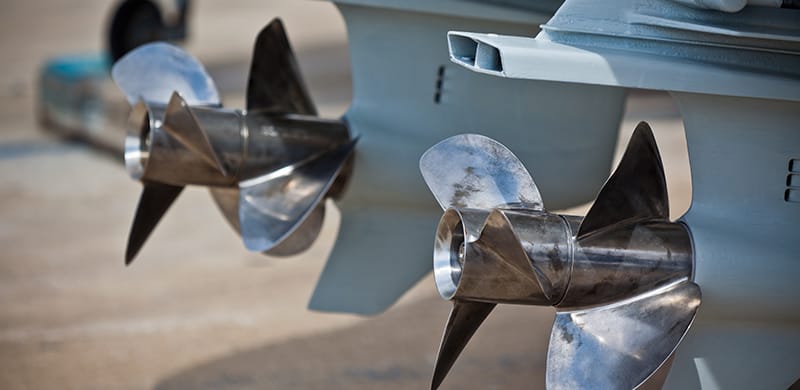
Unlike their fixed cousins, variable pitch propellers allow you to change the blade angle, even during operation in some setups. These are more commonly used on commercial vessels, inboard engines, or specialized high-performance craft that require adaptable propeller type behavior.
Advantages of Variable Pitch Propellers:
- Optimize for fuel economy, thrust, or speed on the fly
- Better for complex or long-distance operations
- Useful for boats that carry changing loads
However, they’re expensive and complex, so unless you’re running a commercial system, you probably won’t need a variable pitch prop.
8. Ducted Propellers (aka Kort Nozzles)
A ducted propeller is surrounded by a fixed ring or nozzle, which helps concentrate water flow and create more thrust at lower speeds. You’ll often see them on tugboats, workboats, or commercial vessels that prioritize power and maneuverability over top speeds.
Why Use A Ducted Prop:
- Improves low-speed thrust
- Protects the prop blades
- Reduces noise and turbulence
9. Surface-Piercing Propellers
Ever seen a boat propeller that looks like it’s skimming the water’s surface? That’s a surface-piercing propeller, designed for speed fiends and high-performance boats. These props operate partially submerged, which reduces drag and creates less turbulence.
Why Surface-Piercing Props Are Cool:
- Designed for higher speeds
- Minimal resistance
- Unique look and sound
These props are not suitable for beginners or smaller engines, but they work remarkably well in the right setup.
Matching the Prop to the Boat
Now that you know the types of boat propellers, how do you choose the right propeller for your boat? Ask yourself these questions:
- What kind of boat do I have (pontoon boat, fishing boat, cruiser)?
- What kind of water do I run in (rough waters, calm lakes, saltwater)?
- Do I care more about top speed, fuel efficiency, or smooth operation?
- What’s my budget? Can I upgrade from aluminum to stainless steel?
If you want optimal performance, it’s often worth testing a new prop or even running different prop styles for different conditions. And remember, you may need to adjust the motor height, check the leading edge and trailing edge of your current prop, or even consider a larger diameter prop for larger boats or when you’re carrying more weight.
Quick Tips Before You Swap Props
Inspect your current prop blades for damage or dings, as these affect water flow and thrust more than you think. Keep an eye on RPMs; if your engine is over- or under-revving, your propeller type might not be the right fit. Talk to other boaters running similar boat props and engines; what works for them might work for you. Remember most props are designed to excel at one or two things. Choose based on your priorities.
Final Thoughts: Spin Smart, Boat Better
Picking the right boat propeller isn’t just about what looks cool or fits on your lower unit. It’s about finding the perfect match for your boat’s performance needs, your driving style, and your boating goals. If you’re chasing top speeds, looking for better stability, or trying to boost your fuel economy, there’s a propeller type out there that’ll help you get it done.
And once you’ve got it dialed in, you’ll feel it. The boat jumps onto the plane quicker, handles like a dream, and sips fuel instead of guzzling it. Because at the end of the day, boating should feel smooth, powerful, and just plain fun!
Prop Depot: Tennessee’s Propeller Shop with Nationwide Reach
Looking for a strong, dependable propeller for your boat? Prop Depot has you covered! Based in Tennessee, Prop Depot is an authorized dealer for leading brands like Mercury, ACME, and more.
From expert prop repairs to a wide selection of quality propellers, Prop Depot serves boaters across the country with fast turnaround times, genuine OEM parts, and excellent customer support. Need help choosing the right prop or looking to ship yours in for service? Give us a call at (865) 673-8171 now!
